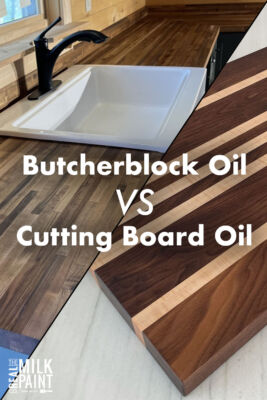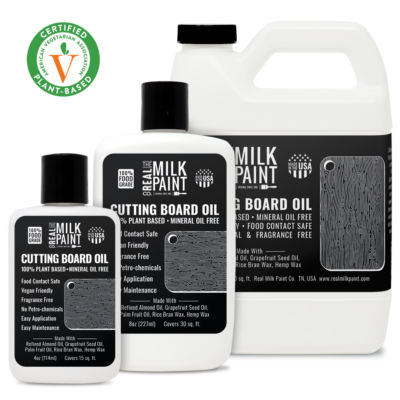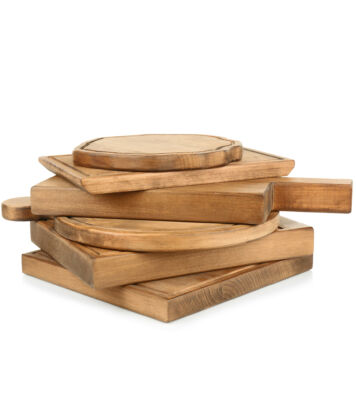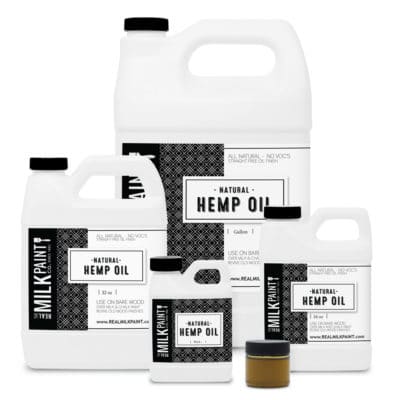 When it comes to maintaining the natural beauty and functionality of your wood cutting boards and butcher blocks, selecting the correct type of oil is crucial. The debate between butcher block oil and cutting board oil is about preserving the wood’s surface, ensuring food safety, and extending the life of your wood products. While both oils aim to protect and enhance wood surfaces, understanding the nuances between them can make a significant difference in your kitchen routine and the longevity of your boards. In this comprehensive guide, we’ll delve into the specifics of butcher block oil vs cutting board oil, helping you make an informed decision for your kitchen needs.
When it comes to maintaining the natural beauty and functionality of your wood cutting boards and butcher blocks, selecting the correct type of oil is crucial. The debate between butcher block oil and cutting board oil is about preserving the wood’s surface, ensuring food safety, and extending the life of your wood products. While both oils aim to protect and enhance wood surfaces, understanding the nuances between them can make a significant difference in your kitchen routine and the longevity of your boards. In this comprehensive guide, we’ll delve into the specifics of butcher block oil vs cutting board oil, helping you make an informed decision for your kitchen needs.
The Importance of Choosing the Right Oil
The right oil does more than just give your butcher blocks and cutting boards a pleasing sheen; it is a barrier against moisture and bacteria, which are critical factors in the longevity and hygiene of your wood surfaces. Butcher block countertops and wood cutting boards are integral to food preparation areas, so the oil you choose must be food-safe and designed to preserve the wood without contaminating your food.
Understanding Butcher Block Oil
What is Butcher Block Oil?
Butcher block oil is a specialized treatment designed to penetrate the dense surface of butcher block countertops, which are often subject to heavy-duty use and frequent exposure to moisture. This type of oil is typically odorless and has a dense consistency to nourish the wood deeply. Unlike some natural vegetable oils, butcher block oil is engineered to be non-toxic and will not turn rancid, ensuring that the surface remains safe for food contact over time.
Benefits of Using Butcher Block Oil
The primary benefit of butcher block oil is its ability to protect and enhance the wood’s natural grain while being safe for food preparation areas. It is a barrier against water and stains, crucial for surfaces frequently used for chopping, slicing, and direct food contact. Regular application of butcher block oil can also prevent the wood from drying and cracking, thereby extending the life of your butcher block countertop.
Best Practices for Applying Butcher Block Oil
To maintain the integrity of your butcher block, it’s essential to apply oil correctly. Start with a clean, dry surface. Apply the oil in an even layer using a soft cloth or a brush. Allow the oil to soak into the wood for a few hours or overnight for deep conditioning. After the oil has been absorbed, wipe away any excess with a clean cloth. For best results, reapply oil monthly, as needed based on usage, or according to the oil manufacturer’s directions, ensuring your butcher block remains resilient and hygienic.
Understanding Cutting Board Oil
What is Cutting Board Oil?
 Cutting board oil is a lighter, more fluid oil than butcher block oil, making it ideal for the regular maintenance of wood cutting boards. It’s designed to quickly soak into the wood, creating a protective layer that is less about heavy-duty protection and more about maintaining the board’s natural feel and function. Like butcher block oil, the best cutting board oils are food grade, ensuring they’re safe to use where food is prepared.
Cutting board oil is a lighter, more fluid oil than butcher block oil, making it ideal for the regular maintenance of wood cutting boards. It’s designed to quickly soak into the wood, creating a protective layer that is less about heavy-duty protection and more about maintaining the board’s natural feel and function. Like butcher block oil, the best cutting board oils are food grade, ensuring they’re safe to use where food is prepared.
Advantages of Cutting Board Oil for Food Safety
The advantages of cutting board oil are centered around food safety and preserving your cutting board. An adequately oiled board resists water penetration and bacterial growth, two critical factors in food hygiene. The oil acts as a barrier, repelling moisture and food particles that can lead to bacteria buildup. By using cutting board oil, you’re not just maintaining the wood but actively contributing to a safer food preparation environment.
How to Properly Apply Cutting Board Oil
Applying cutting board oil is a simple process that can have a lasting impact on the longevity of your board. Clean the board thoroughly and make sure it’s completely dry. Apply the oil in a generous amount, spreading it evenly over the surface with a soft cloth. Allow the board to absorb the oil, usually for a few hours, before wiping off any excess. For routine maintenance, frequently oil your cutting board once a month or more if it looks dry or dull. This regular upkeep helps ensure that your wood-cutting board remains a vibrant and safe centerpiece in your kitchen for years.
Comparing Butcher Block Oil and Cutting Board Oil
Composition and Viscosity Differences
When comparing butcher block oil to cutting board oil, the key differences lie in their composition and viscosity. Butcher block oil is generally thicker, which allows it to fill and seal the larger pores and grain found in butcher blocks. Cutting board oil, conversely, is more fluid, facilitating a quicker absorption rate suitable for the typically less dense wood of cutting boards. This distinction affects the level of protection each oil offers and the frequency with which you must reapply it to maintain its optimal condition.
Suitability for Different Types of Wood
The type of wood your cutting board or butcher block is made from can also influence which oil is more appropriate. Dense woods with tight grains, like maple, often used for butcher blocks, benefit from the thicker butcher block oil. Lighter woods or those with an open grain structure, commonly used for cutting boards, are better served by the lighter cutting board oil, which won’t overwhelm the wood’s natural texture.
Price Comparison and Accessibility
Regarding cost, both butcher block oil and cutting board oil are relatively affordable and widely available. However, the price can vary based on the brand and the size of the container. Accessibility is straightforward for both types of oil, with options available in home improvement stores, kitchen supply shops, and online retailers.
Can You Use Butcher Block Oil on Cutting Boards and Vice Versa?
 While both oils are designed for wood products and are food-safe, it’s generally recommended to use the specific oil for its intended purpose to achieve the best results. However, in a pinch, you can use butcher block oil on cutting boards and vice versa, as long as the oil is food grade and safe for contact with food. The primary consideration should always be the safety and longevity of your wood surfaces.
While both oils are designed for wood products and are food-safe, it’s generally recommended to use the specific oil for its intended purpose to achieve the best results. However, in a pinch, you can use butcher block oil on cutting boards and vice versa, as long as the oil is food grade and safe for contact with food. The primary consideration should always be the safety and longevity of your wood surfaces.
Expert Tips for Maintaining Your Butcher Blocks and Cutting Boards
Frequency of Oiling for Optimal Maintenance
The frequency of oiling your butcher blocks and cutting boards can vary based on how often you use them and the conditions they’re exposed to. A good rule of thumb is to oil your wood surfaces once a month or whenever the wood looks dry. In drier climates or during heavy use, you may need to oil more frequently.
The Role of Conditioners and Waxes
Conditioners and waxes can be used with oils to provide additional protection. They typically contain oil and wax, offering both benefits in one product. These are especially useful for butcher blocks that see a lot of wear and tear, as they can help fill in scratches and provide a more durable surface.
Common Mistakes to Avoid in Butcher Block and Cutting Board Care
Using the Wrong Oils: What to Avoid
 It’s important to avoid using cooking oils, such as vegetable or olive oil, on your cutting boards or butcher blocks. These oils can spoil and become rancid, leading to odors and potential health hazards. Stick to food-grade oils specifically designed for wood care.
It’s important to avoid using cooking oils, such as vegetable or olive oil, on your cutting boards or butcher blocks. These oils can spoil and become rancid, leading to odors and potential health hazards. Stick to food-grade oils specifically designed for wood care.
Over-Oiling and Under-Oiling: Finding the Balance
Applying too much oil can leave your wood surfaces sticky and may attract dirt and dust. Not oiling enough can lead to dry, brittle wood prone to cracking. Finding the right balance is vital to maintaining your wood’s health and appearance.
Cleaning Do’s and Don’ts After Oiling
After oiling, always use a clean cloth to remove excess oil. Avoid harsh chemicals or abrasive scrubbers on oiled surfaces, as these can strip the oil and damage the wood. Stick to gentle, wood-safe cleaners and warm water for routine cleaning.
Buy Quality Butcher Block and Cutting Board Oil From Real Milk Paint
For those looking to purchase high-quality oils for their butcher blocks and cutting boards, Real Milk Paint offers a selection of products that cater to the needs of food-safe wood care. Our cutting board oil and butcher block oils are formulated to be non-toxic and effective, ensuring that your wood surfaces are beautiful, protected, and safe for all your food preparation needs. Check out our range of finishing oils for butcher blocks, cutting boards, and all your wood creations.



